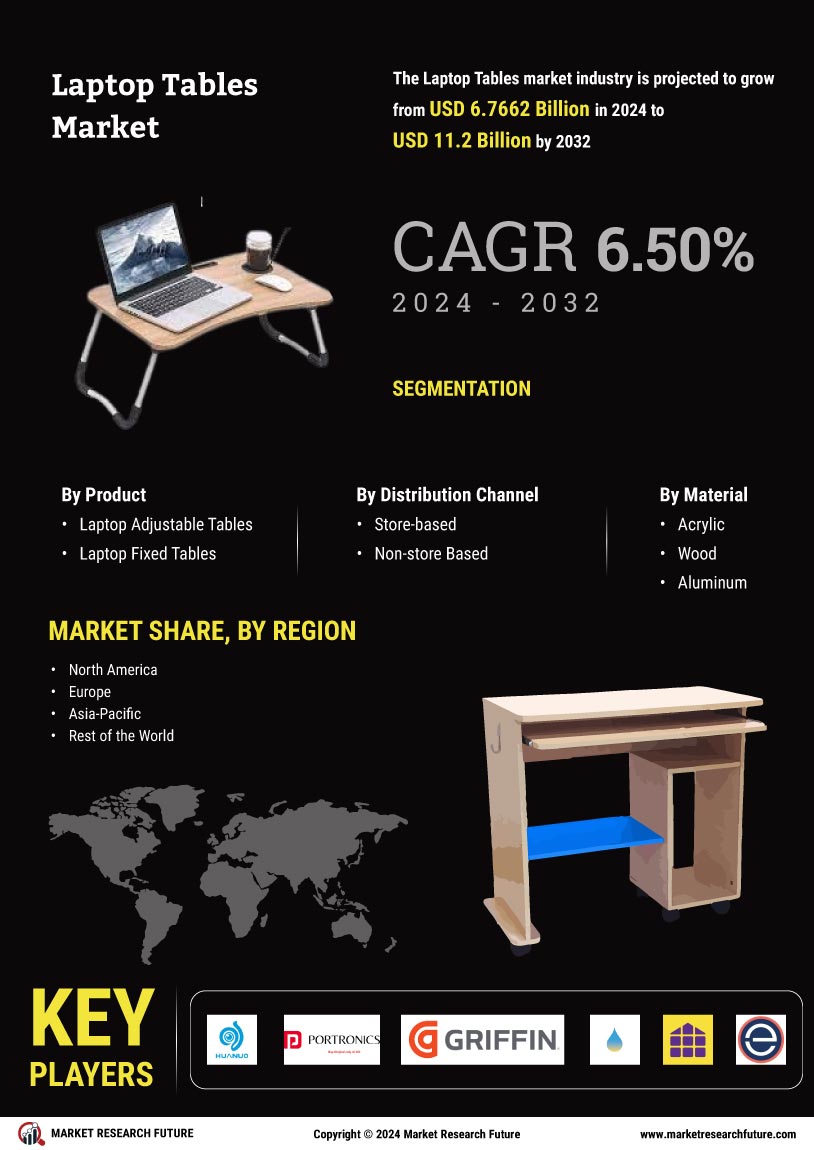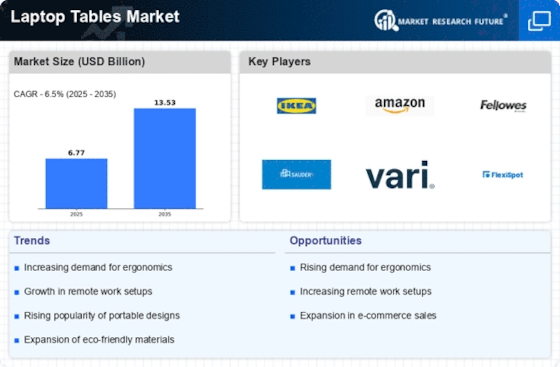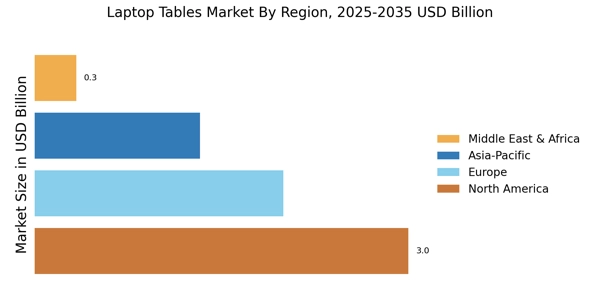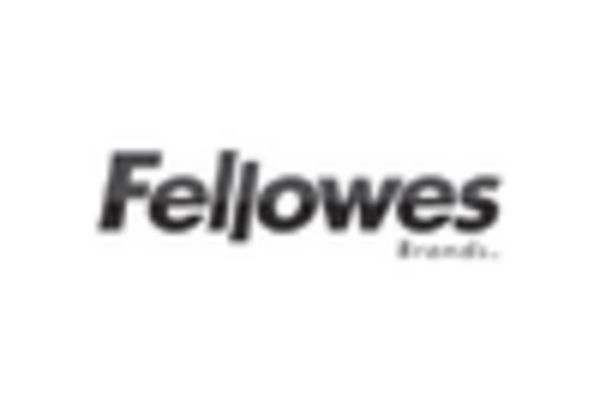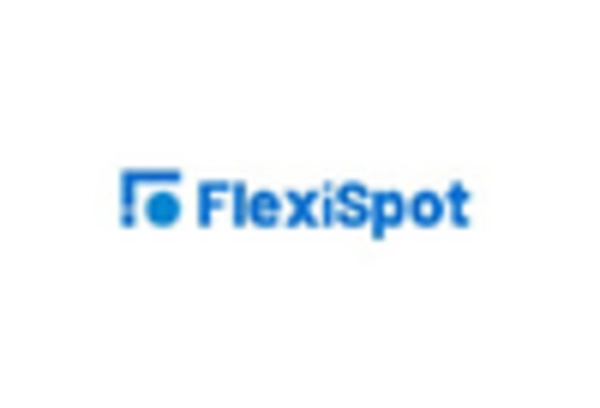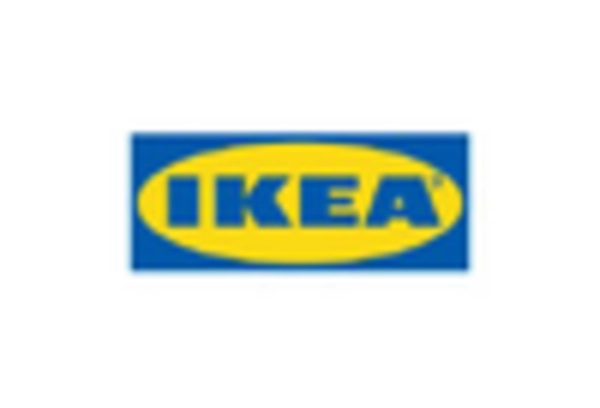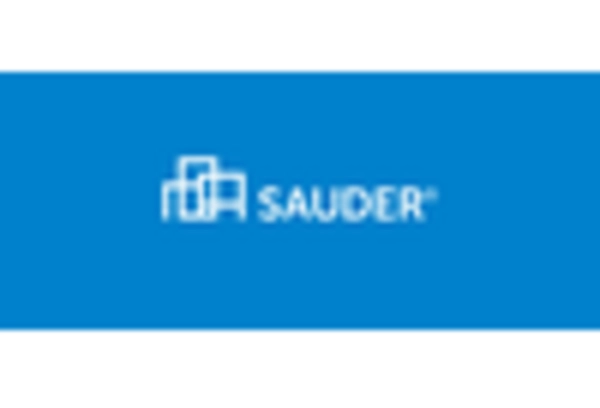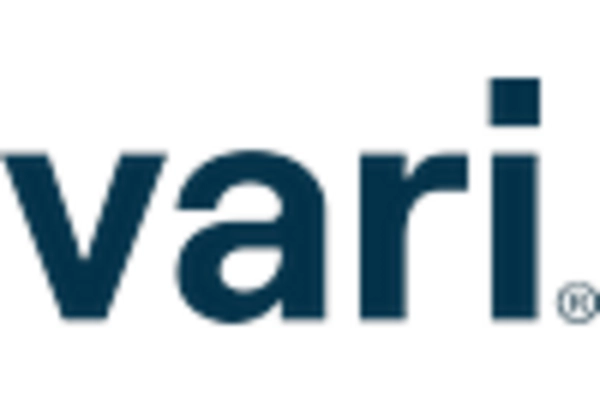E-commerce Growth
The rapid growth of e-commerce is reshaping the Laptop Tables Market. With more consumers turning to online shopping for convenience, the availability of a wide range of laptop tables through various e-commerce platforms is expanding. This trend is particularly evident as online sales channels are projected to account for a significant portion of furniture sales in the coming years. Data suggests that e-commerce sales in the furniture sector are expected to grow by over 20% annually. This shift not only provides consumers with greater access to diverse product offerings but also encourages manufacturers to enhance their online presence and marketing strategies. Consequently, the e-commerce boom is likely to play a crucial role in driving sales and expanding market reach for laptop tables.
Sustainability Trends
Sustainability trends are increasingly influencing consumer purchasing decisions within the Laptop Tables Market. As environmental concerns gain prominence, consumers are seeking products made from sustainable materials and eco-friendly manufacturing processes. This shift is prompting manufacturers to adopt greener practices and offer laptop tables that align with these values. Market data indicates that the demand for sustainable furniture is on the rise, with projections suggesting a growth rate of around 12% in this segment. This trend reflects a broader societal commitment to reducing environmental impact, which is likely to shape product development and marketing strategies in the laptop tables sector. As consumers become more environmentally conscious, the emphasis on sustainability will continue to drive innovation and competition in the market.
Rising Remote Work Culture
The increasing prevalence of remote work appears to be a primary driver for the Laptop Tables Market. As more individuals opt for flexible work arrangements, the demand for functional and comfortable workspaces at home has surged. This trend has led to a notable increase in the sales of laptop tables, which provide ergonomic solutions for prolonged use. According to recent data, the market for home office furniture, including laptop tables, is projected to grow at a compound annual growth rate of approximately 8% over the next five years. This shift in work culture not only emphasizes the need for dedicated workspaces but also highlights the importance of investing in quality furniture that enhances productivity and comfort.
Technological Advancements
Technological advancements in materials and design are significantly influencing the Laptop Tables Market. Innovations such as lightweight, durable materials and adjustable height features are becoming increasingly popular among consumers. These advancements cater to the growing demand for multifunctional furniture that can adapt to various user needs. For instance, the integration of smart technology into laptop tables, such as built-in charging ports and wireless connectivity, is enhancing user experience. Market data suggests that the segment of laptop tables featuring technological enhancements is expected to witness a growth rate of around 10% annually. This trend indicates a shift towards more sophisticated and user-friendly designs, which could redefine consumer expectations in the market.
Health and Wellness Awareness
The rising awareness of health and wellness is driving changes in the Laptop Tables Market. Consumers are increasingly prioritizing ergonomic designs that promote better posture and reduce the risk of musculoskeletal disorders. This shift is leading to a growing preference for adjustable laptop tables that allow users to alternate between sitting and standing positions. Market Research Future indicates that ergonomic furniture sales, including laptop tables, are projected to increase by approximately 15% over the next few years. This trend reflects a broader societal movement towards healthier lifestyles, where individuals are more conscious of the impact of their work environments on their overall well-being. As a result, manufacturers are focusing on creating products that align with these health-conscious consumer preferences.
